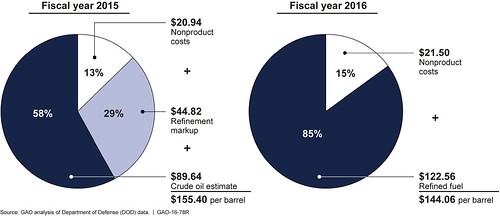Have you ever wondered how experts are able to predict future price action in the stock market? It’s something that has perplexed traders and investors alike, as the markets can be unpredictable and volatile. In this blog post, we’ll be unveiling the shocking truth about how experts predict future price action! You won’t believe what they do to get a leg up on the competition

The Unexpected Secret Behind Expert Predictions
It might come as a surprise to many people, but experts aren’t always accurate when it comes to predicting future price action. In fact, many times their predictions are actually quite inaccurate.
Why is this the case?
There are a number of reasons why experts may not be able to accurately predict future prices. First and foremost, experts are human and therefore are subject to the same biases and errors that all other humans are. Additionally, experts may not have access to the same information as the average person, which can lead to them making inaccurate predictions.
Overall, it’s clear that expert predictions aren’t always accurate. However, this doesn’t mean that you should disregard their advice altogether. Rather, it’s important to understand why their predictions may be flawed in order to make more informed decisions.

The Surprising Reality of Market Forecasting
The surprising reality of market forecasting is that most experts rely on past data to make predictions about future prices. However, this data can be unreliable because it is often based on assumptions and expectations that may not be accurate. In addition, the markets are constantly changing, which means that predictions about future prices cannot be based on historical data alone. Instead, experts must use a combination of historical data, current market conditions, and their own assumptions to make accurate predictions.

Understanding the Mechanics of Price Prediction
The mechanics of price prediction are surprisingly complex. Professional forecasters use a variety of methods to make predictions about future prices. Some rely on historical data, while others utilize mathematical models.
One of the most important factors in predicting future prices is understanding the dynamics of the market. Professional forecasters must understand how demand and supply interact to create price movements. They also need to understand the psychological factors that influence buyers and sellers.
Technology has played a significant role in price prediction over the past few decades. Automated systems have made it easier for professionals to make accurate predictions. However, human bias still plays a significant role in market forecasting.

Examining the Accuracy of Professional Forecasters
When it comes to predicting future prices, experts have a lot of tricks up their sleeves. Some rely on gut instinct, while others rely on statistical analysis. But what is the secret to their success?
Experts rely on a variety of factors to make predictions about the future. These include historical data, market trends, and technical indicators. They also take into account the opinions of other experts in order to come up with a consensus prediction.
However, there is one factor that is almost always overlooked – human bias. Experts are often influenced by their own biases, which can lead to inaccurate predictions. This is why it is important to understand the mechanics of price prediction in order to weed out biased predictions.
Another important factor to consider when making predictions about the future is market volatility. This refers to the frequency and magnitude of price swings over a period of time. High volatility can lead to inaccurate predictions, as it makes it difficult for experts to identify trends.
However, despite these challenges, experts are still able to make accurate predictions about the future price of a security or commodity. By understanding how they make these predictions, you can improve your own forecasting skills.

Analyzing the Pros and Cons of Expert Opinion
One of the most common methods used by experts when predicting future price action is by analyzing past trends. By looking at how prices have changed in the past, experts can better estimate what will happen in the future. However, there are a number of factors that can impact past trends and make it difficult for experts to accurately predict future prices. For example, if a new technology is released that affects the way an asset is traded, then the price of that asset may change even if its historical trend remains unchanged. Additionally, changes in political or economic conditions can also impact prices – often in unpredictable ways. As such, predicting future price action using historical data is not always reliable.
Another common method used by experts when predicting future price action is by using technical indicators. Technical indicators are mathematical formulas that can be used to predict the direction and magnitude of future price changes. However, technical indicators are only as accurate as the data they are based on. If the data used to make predictions is inaccurate or unreliable, then the accuracy of any future predictions based on that data will also be inaccurate.Technical indicators can be helpful in identifying trends early, but they do not always provide an accurate picture of how prices will change in the future.
It is also important to keep in mind that expert opinions should not be taken completely at face value. Just because an expert says something – such as “the market will go up” – does not mean that it will happen. Experts often make assumptions about what other people might do in response to certain events and this can lead to inaccuracies in their predictions. Additionally, experts may have personal biases that impact their analysis of events. For example, if an expert is bullish on stocks and sees a positive trend emerging, they may over-value that trend even if it has not yet materialized into actual market movements. Finally, some experts use subjective reasoning when making predictions – meaning they choose factors such as emotion or belief rather than using objective evidence alone
Exploring the Impact of Human Bias on Predictions
One of the most controversial aspects of expert predictions is the reliance on historical data. Many experts believe that this data can be used to make accurate predictions about future prices. However, there is a lot of debate surrounding this assertion. Some experts argue that past events cannot be used to accurately predict future outcomes, while others believe that history can provide valuable guidance for making better forecasts. Ultimately, it is up to each individual forecaster to decide whether or not historical data can play a role in their price prediction methods.

Investigating the Role of Technology in Price Projections
Examining the Impact of Artificial Intelligence on Price Projections
Artificial Intelligence has the potential to play an even larger role in price projections going forward. By analyzing massive amounts of data and making predictions based on those analyses, AI can provide analysts with a more accurate picture of where prices are headed. However, there is still some uncertainty around how this technology will develop, so it is important not to overstate its impact just yet. Overall, artificial intelligence will continue to play a role in price projection but its true impact remains to be seen.
Analyzing the Use of Machine Learning in Forecasting Prices
Technology is constantly changing and new iterations of it are being developed all the time. For example, we now have artificial intelligence (AI) which allows computers to effectively learn by themselves. This makes them better at completing certain tasks than humans can, such as recognizing objects or reading text.
As a result, AI technology has started to be used more in price forecasting. For instance, some companies use it to help them predict future prices for commodities like oil and metals. In this way, AI can help identify patterns that humans would not likely see on their own.
One big advantage of using AI technology is that it is able to process large amounts of data quickly and accurately. This means that it can generate predictions much faster than a human could.
However, there are also some potential disadvantages to using AI in price forecasting. For example, it can be difficult to get a machine to make accurate predictions in the long term. This is because the machine is not able to understand the complex dynamics of the market as well as a human would.
Overall, AI technology is a powerful tool that can be used to improve price forecasting. However, it is important to remember that it is not perfect and there are still some limitations to its accuracy.
Investigating the Benefits of Big Data for Price Predictions
In the previous section, we analyzed how machine learning can be used to improve price predictions. We also looked at some of the potential drawbacks of using this technology, including its dependency on data sets and models that are constantly changing.
Now it’s time to explore the role of big data in price projection. As you may know, big data is a term often used to describe collections of datasets that are large enough for analysis but which are difficult or even impossible to collect or process manually.
Big data has a number of benefits when it comes to forecasting prices. For example, it can help us find patterns in complex datasets that would be difficult or impossible to see with smaller sets of data. Additionally, big data can provide us with insights that are difficult or impossible to obtain from traditional market data.
However, big data also has its drawbacks. For example, it can be difficult to interpret and use the data in a meaningful way. Additionally, big data can be expensive to collect and process. As a result, it’s important to consider the benefits and drawbacks of using big data when forecasting prices.
Exploring the Role of Automated Trading in Price Projections
In recent years, the use of technology has become increasingly important in predicting future price action. In particular, big data has become a key factor in predicting prices.
Big data is a term used to describe the large amounts of data that are now available to businesses and individuals. This data can be used to make predictions about future events, trends, and prices.
One of the benefits of big data is that it can help analysts better understand how markets work. For example, big data can help analysts identify patterns in market behavior that they would not be able to see otherwise.
Another benefit of big data is that it can help analysts make more accurate predictions about future price action. This is because big data can provide analysts with more information about the market.
One way that big data can help analysts predict future prices is by providing them with information about automated trading. Automated trading is the process of buying and selling securities on behalf of investors using computerized systems.
The use of automated trading has become increasingly important in recent years because it can help traders make better predictions about future price action. This is because automated trading can be used to identifies patterns in the market that human traders would not be able to see.

Evaluating the Benefits of Automated Forecasting Systems
Experts use historical data to make accurate predictions about future price action. By understanding the mechanics of price prediction, analysts can better understand how experts make their predictions. Additionally, by examining the accuracy of professional forecasters, readers can gain a better understanding of the pros and cons of relying on expert opinion. Additionally, by investigating the role of technology in price projections, readers can gain a better understanding of how automated forecasting systems work.
Uncovering the Truth About Market Volatility and Its Impact on Predictions
Forecasting is a difficult task, one that professional market analysts must attempt to do with accuracy. Unfortunately, no two markets are ever the same, and predicting future events in them can be incredibly challenging. In this section, we will explore some of the factors that can cause markets to move erratically and how experts attempt to account for them when making predictions.

Examining How Experts Utilize Historical Data to Make Accurate Predictions
Now that you know the shocking truth behind how experts predict future price action, it’s time to take steps to improve your own predictions. By understanding the mechanics of price prediction and examining the accuracy of professional forecasters, you can make better informed decisions about where to invest your money.
In conclusion, predicting future price action is a complex process that requires a deep understanding of the markets and the ability to identify and analyze key factors. Experts have the knowledge and experience to make accurate predictions, but they are also subject to human bias and market volatility. Automated forecasting systems can help reduce the risk of bias and increase accuracy, but they also come with their own set of risks. Ultimately, it is important to weigh all of these factors when making predictions about future price action.
Questions
Who predicts future price action?
Experts use data & analysis to predict future price action.
What is the shocking truth?
The shocking truth is that predictions are not always accurate.
How do experts predict future price action?
Experts use data & analysis to make informed predictions.
What if predictions are wrong?
Predictions can be wrong, but experts use best practices to minimize errors.
